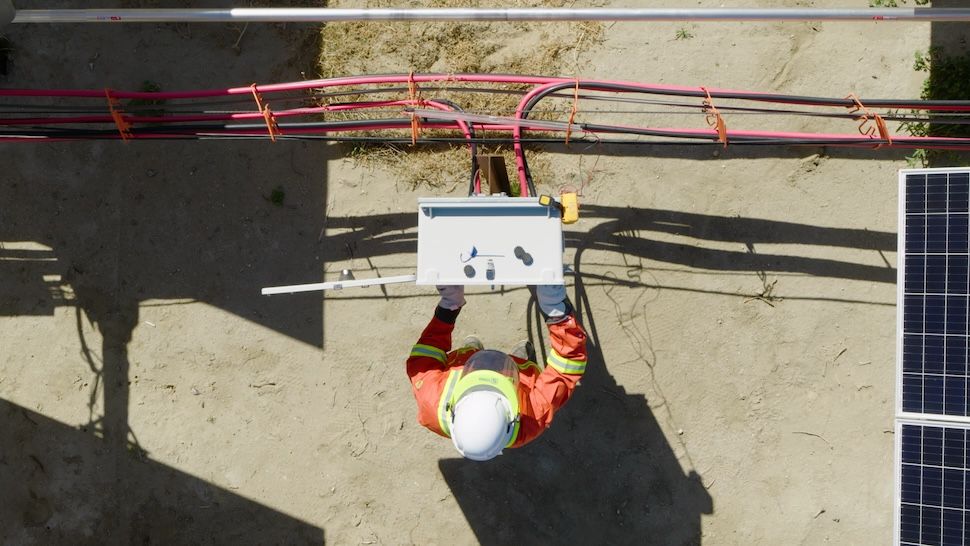Amazon has published details of a new battery energy storage system it will use at its Mojave Desert solar site to ensure minimal power disruptions in its bid to clean up and reduce emissions.
Per a press release, a football field-sized battery storage facility at its Baldy Mesa solar farm will discharge stored daytime electricity back into the grid at night starting this month.
The revised site, which Amazon is calling a ‘solar-plus-storage farm,’ will utilize machine learning models powered by Amazon Web Services to optimize battery charging and discharging in order to ensure a steady flow of carbon-free energy in order for the tech giant to offset the high consumption of its data centers and other sites.
Amazon says AI-powered solar is the solution to decarbonization
Kara Hurst, Amazon’s VP of Worldwide Sustainability, commented on the project:
“Pairing solar projects enabled by Amazon with AI technologies powered by AWS helps to ensure the grid and the customers it serves receive a steady supply of carbon-free energy for more hours each day, while also helping Amazon make progress toward our commitment to be a more sustainable company.”
Together with the company’s other efforts, including a rooftop solar array at its Air Hub in San Bernadino, Amazon now has nearly 1.5 gigawatts of battery energy storage capacity.
At the Baldy Mesa site, developed, owned, and operated by AES, AI-driven software built with Amazon SageMaker will analyze up to 33 billion data points annually to optimize energy storage and grid distribution.
Highlighting the scale of the potential, the announcement declares (citing figures from the International Energy Agency) that more than 400 billion data points per year are produced by the world’s wind turbines, all of which could feed into AI and ML models.
Besides energy generation, Amazon is also working on an AI model that could help reduce energy usage at its Air Hub and other buildings.
On the whole, Amazon’s initiatives at Baldy Mesa and beyond are an example in action of the crucial role that emerging technologies like AI can have in the renewable energy sector, which is known for higher supply fluctuations due to the natural resources on which they rely.

